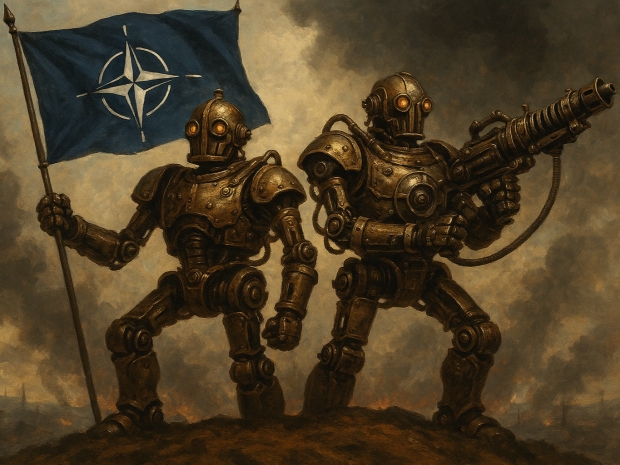The NATO Communications and Information Agency (NCIA) said the AI-powered setup—rebranded as Maven Smart System NATO—will serve its Allied Command Operations with a “common data-enabled warfighting capability,” mixing generative AI, machine learning, and large language models to power intelligence fusion, target planning, and command decisions.
NCIA general manager Ludwig Decamps said the agreement is about “providing customised state-of-the-art AI capabilities to the Alliance and empowering our forces with the tools required on the modern battlefield to operate effectively and decisively.”
Neither side has revealed the price tag, but Wall Street’s cocaine nose jobs approved — Palantir’s shares shot up more than eight per cent on the back of the news.
NATO distanced the project from the US National Geospatial-Intelligence Agency’s Maven programme, even though Palantir’s tech is knitted into both. The system was initially baked into the Pentagon’s Project Maven and has already earned the data-mining outfit a $480 million deal with the US Department of Defense and a separate $100 million gig with the Army Research Lab.
Now, the Alliance plans to fire up its own flavour of the AI system within the next 30 days, aiming to push even more digital military tools into the field. German Army Gen. Markus Laubenthal, chief of staff of NATO’s Supreme Headquarters Allied Powers Europe, said: “ACO is at the forefront of adopting technologies that make NATO more agile, adaptable, and responsive to emerging threats. Innovation is core to our warfighting ability.”
“Maven Smart System NATO enables the Alliance to leverage complex data, accelerate decision-making, and by doing so, adds a true operational value,” Laubenthal said.




